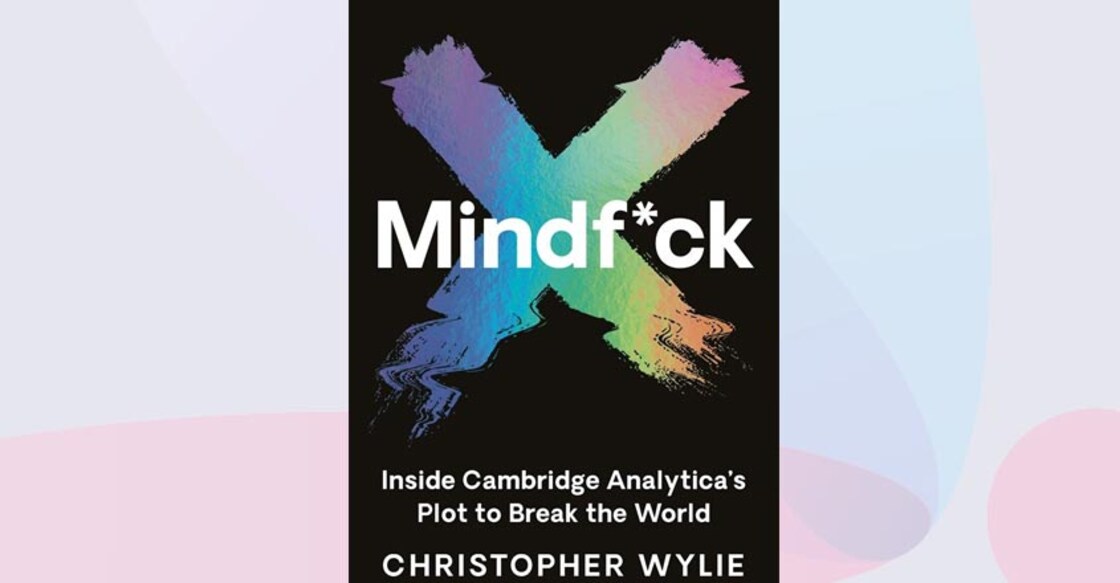For Facebook, you're just a commodity in high-stake data trade: New book

Mail This Article
New Delhi: If you have seen the latest Netflix documentary 'The Great Hack' on Cambridge Analytica (CA), a military contractor and psychological warfare firm involving a complex web of Facebook, Russian intrusion, the Trump campaign and Brexit referendum, it is time to meet Christopher Wylie - one of the two whistleblowers who blew the lid off the dark secrets of the "full service propaganda machine" and complete the dirty picture.
The biggest data scandal of the decade that shook the ground beneath Facebook and its senior leadership, "Cambridge Analytica is Steve Bannon's (former Trump adviser) psychological mindf**k tool," writes Wylie in his just released book, titled "Mindf**k: Inside Cambridge Analytica's Plot to Break the World".
Billed as 'a pink-haired, nose-ringed oracle sent from the future,' Wylie first began working for an obscure British military contractor SCL Group.
Conservative strategist Bannon became involved with the SCL Group and brought on board billionaire Robert Mercer, who was on a crusade to start his own far-right insurgency and launch an ideological assault on America with SCL subsidiary Cambridge Analytica.
Wylie, 24, served as research director at Cambridge Analytica for a year and a half and saw closely how the firm combined psychological research with private Facebook data of 87 million users to make an invisible weapon with the power to change what the US voters perceived as real in the 2016 presidential elections with Russian intrusion.
And when Britain shocked the world by voting the leave the European Union (EU), Wylie realised it was time to expose the associates.
"The story of Cambridge Analytica shows how our identities and behaviour have become commodities in the high-stake data trade, the companies that control the flow of information are among the most powerful in the world, the algorithms they have designed in secret are shaping minds in ways previously unimaginable," says Wylie.
You cannot escape Silicon Valley, the new epicentre of our crisis of perception.
"My work with Cambridge Analytica exposed the dark side of tech innovation. We innovated, Russia innovated and Facebook -- the same site where you share your party invites and baby pictures -- allowed these innovations to be unleashed," he writes.
His continuous tirade against data hunters bore fruits when in a historic judgment on July 24 this year, the US Federal Trade Commission (FTC) slapped a massive $5 billion fine on Facebook over users' privacy violations in the Cambridge Analytica scandal, along with the US Securities and Exchange Commission (SEC) directing the social networking platform to pay $100 million penalty for making misleading disclosures regarding the risk of misuse of user data.
Wylie, who risked his life to share the deep secrets running into thousands of pages with US officials saw greed, power, racism and colonialism up close at Cambridge Analytica.
"I saw how billionaires behave when they want to shape the world in their image. I saw the most bizarre dark niches of our society as a whistleblower what big companies will do to protect their profiles. I saw flag-waving patriots turn a blind eye to the defacement of the rule of law on the most important constitutional question of a generation," he laments.
Cambridge Analytica had 5,000 data points on every American -- invisible information that was not visible to anyone except the data scientists at the firm.
According to Wylie, we have seen the value of personal data create entirely new business models and huge profits for social media platforms such as Facebook who have vigorously argued that they are a "free" service.
Hundreds of millions of Americans entered into Facebook's invisible architecture, thinking it was an innocuous place to share pictures and follow their favourite celebrities.
They were drawn into the convenience of connecting with friends and the ability to fend off boredom with games and apps. In reality, they were guinea pigs for millions of advertisers.
Wylie argues that if we are to prevent another Cambridge Analytica from attacking our civil institutions, we have to shun the mistaken view "that somehow, the law cannot keep up with technology".
"The technology sector loves to parrot this idea, as it tends to make legislators feel too stupid or out of touch to challenge their power, but the law can keep up with technology, just as with medicines, civil engineering food standards, energy and countless other highly technical fields.
"We need new rules to help create a healthy friction on the Internet, like speed bumps, to ensure safety new technologies and ecosystems," he writes.

